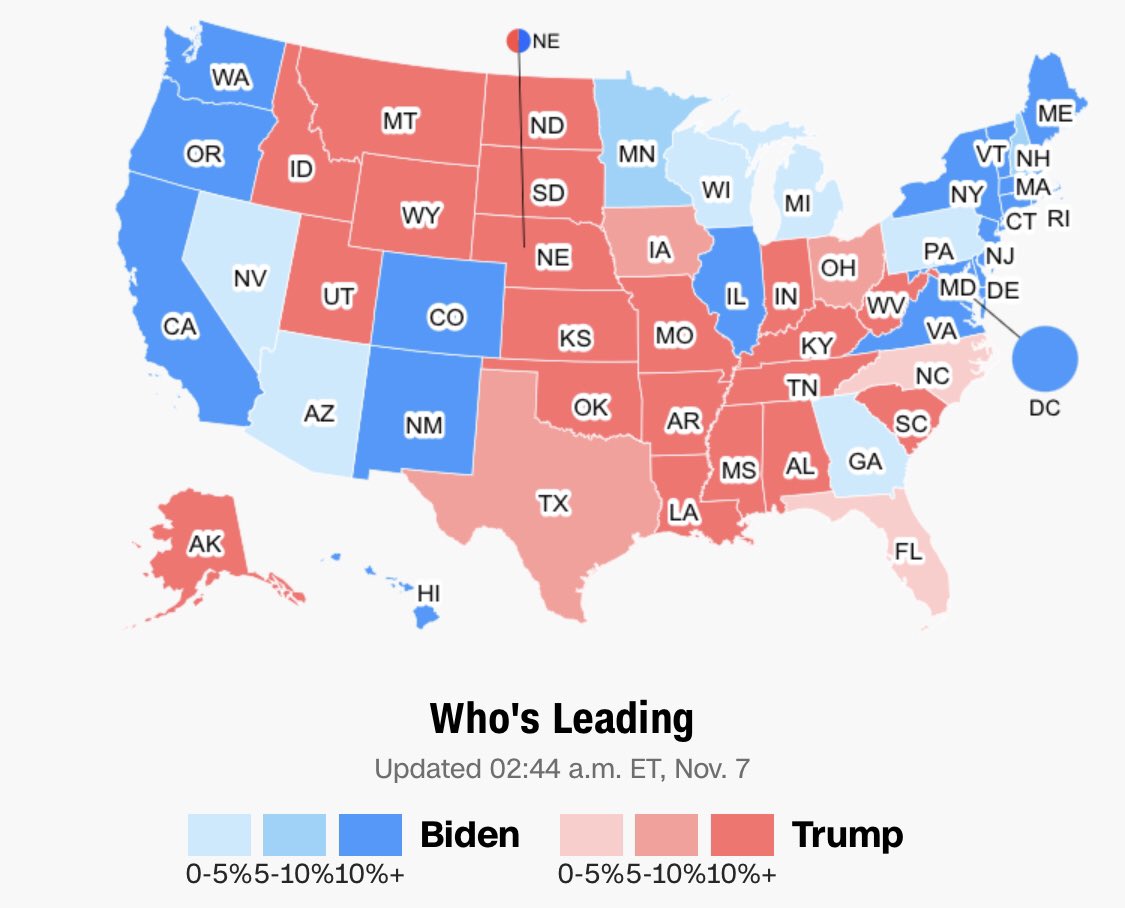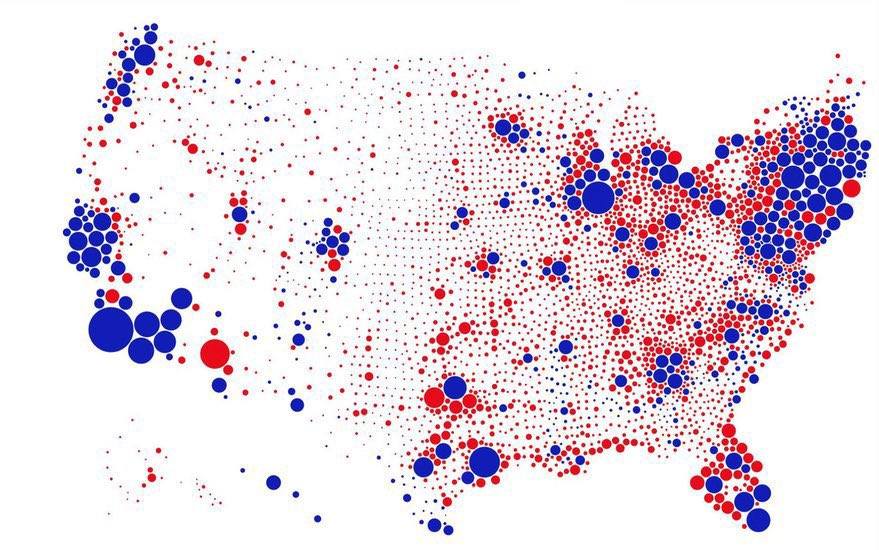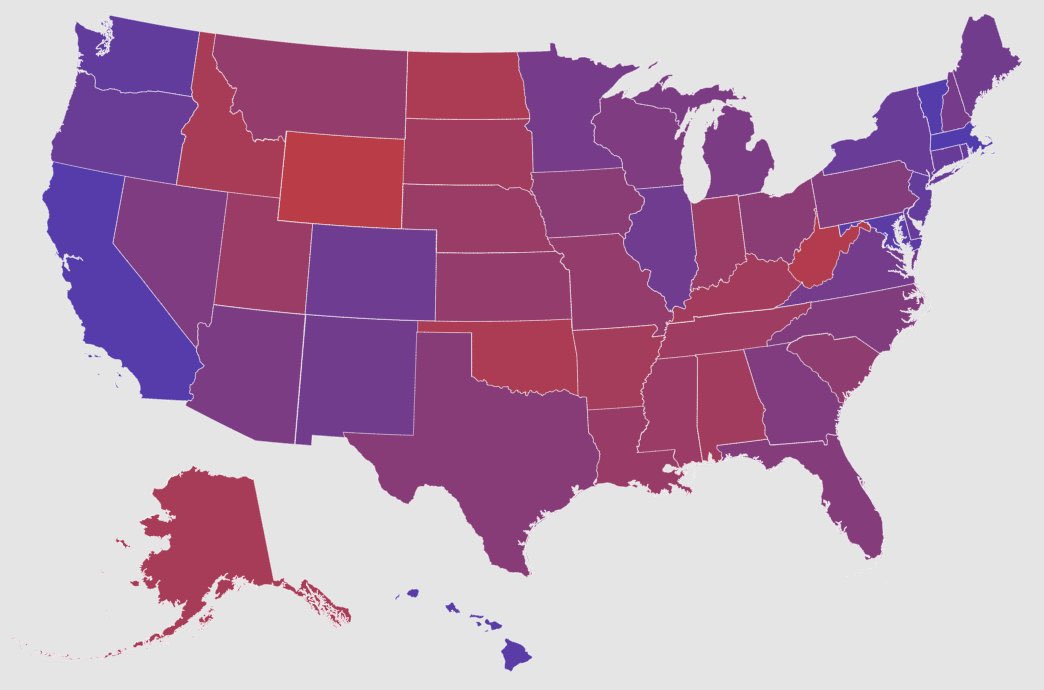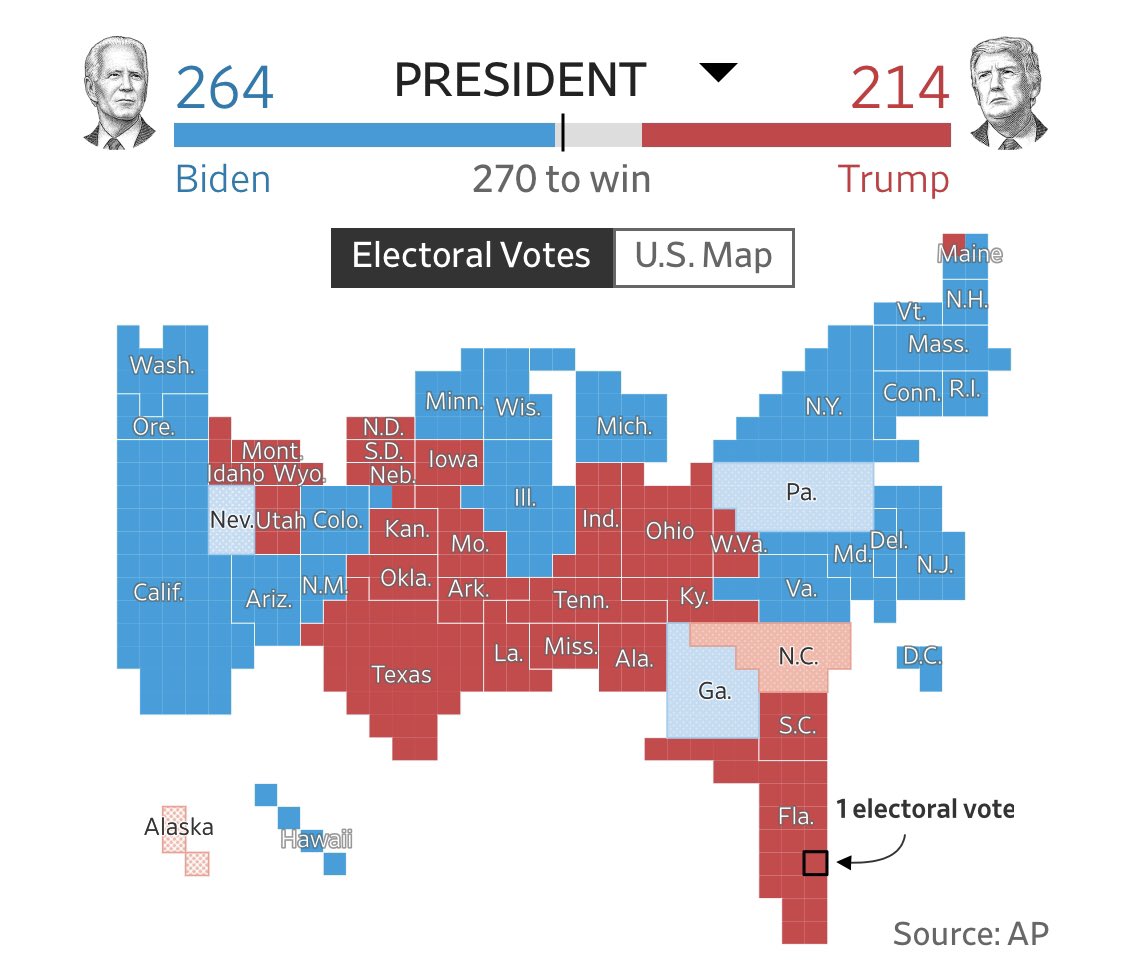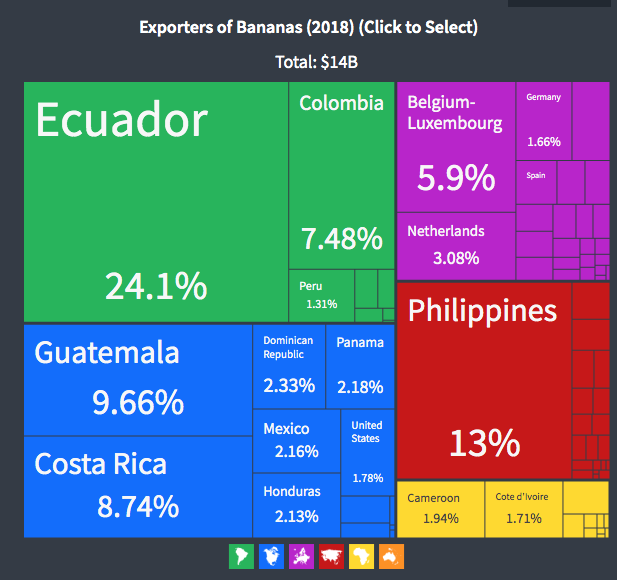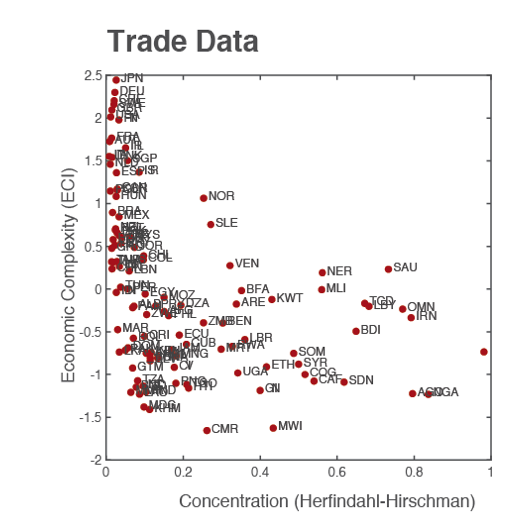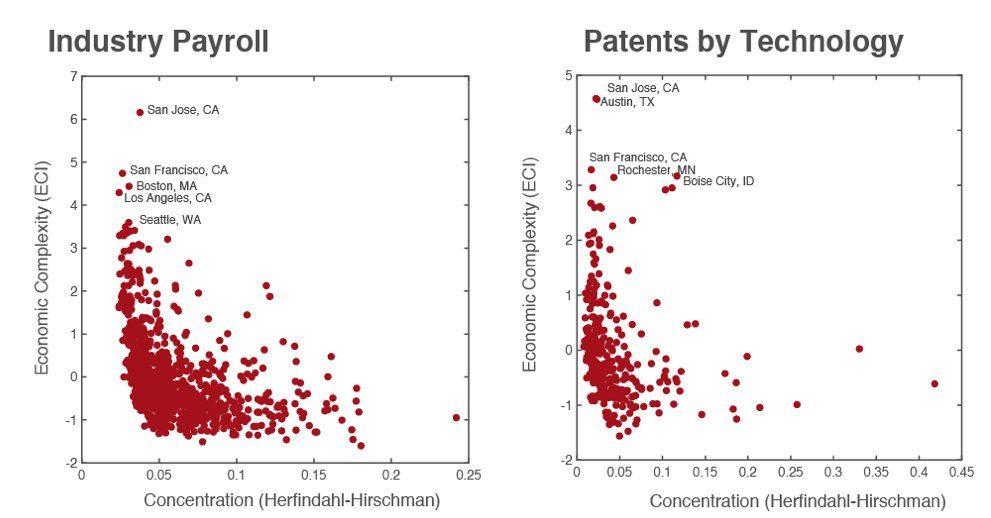
What is economic complexity? And how it is helping us understand the economy? More than a decade ago, two papers helped ignite the field. Today, I am publishing the first comprehensive review of Economic Complexity in Nature Review Physics (thread) 1/N
nature.com/articles/s4225…
nature.com/articles/s4225…

I start from two findings: relatedness and complexity. Relatedness measures the overall affinity between an activity and a location, and can explain path dependencies and the activities that will grow or decline. /2
Complexity metrics are dimensionality reduction techniques (common in machine learning) that can identify the combinations of factors that best explain the geography of multiple economic activities. /3
These two ideas involve the use of machine learning methods to understand economic development. Originally (in 2007 and 2009), this seemed farfetched, but we have since learned how to connect these ideas with traditional economic models. /4
Economic complexity is tightly related to the idea of a production function, but instead of assuming the nature of factors (e.g. capital, labor), complexity metrics learn the factors directly from the data (this box unpacks the basic math). /5 

This is profound, since it provides a means to explain the geography of thousands of economic activities, using production functions, but without assuming what the factors are. /6 





Relatedness metrics are similar to recommender system, but instead of measuring the affinity between a user and a product, they do so between locations and activities. During the last decades, economic geographers have validated relatedness in a variety of settings. /7 

This makes relatedness a new baseline model in economic geography. It requires variables attempting to predict or explain changes in the geography of an activity to go beyond what we can explain using a relatedness baseline. /8 

There are of course some common misconceptions. People confuse metrics of complexity with metrics of diversification (even though they are technically orthogonal), or think of economic complexity and relatedness as exports or trade specific concepts. /9
This is not true. In the last decade the ideas of relatedness and complexity have been translated well to datasets on different activities (industries, occupations, patents, papers), and for many different geographic units (cities, regions, countries). /10
So where are these fields right now?
The study of relatedness has focused on unpacking it into multiple channels. Several studies have measured relatedness with different datasets to see what channels contribute more to explaining the entry and exit of economic activities. /11

The study of relatedness has focused on unpacking it into multiple channels. Several studies have measured relatedness with different datasets to see what channels contribute more to explaining the entry and exit of economic activities. /11
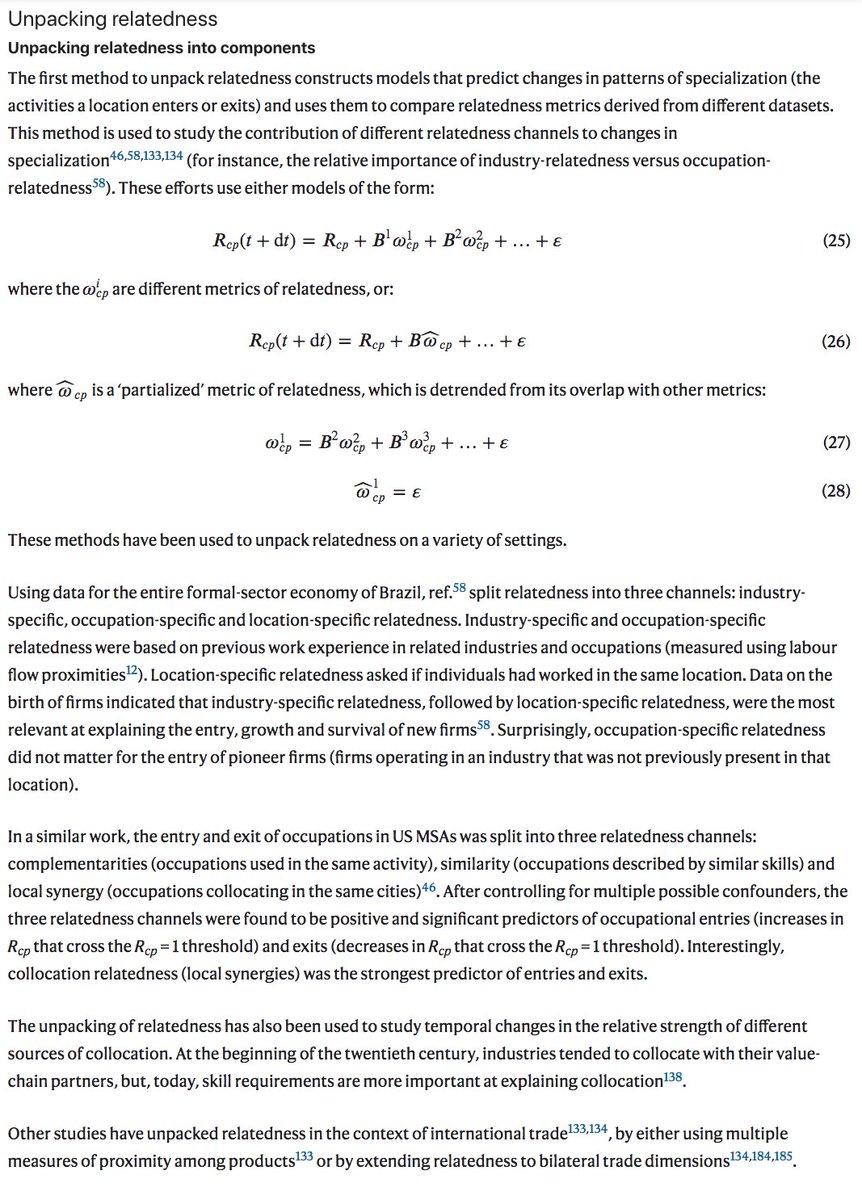

People have also used interactions with relatedness to try to identify path-breaking development policies (although the effects tend to be small despite being significant). /12 
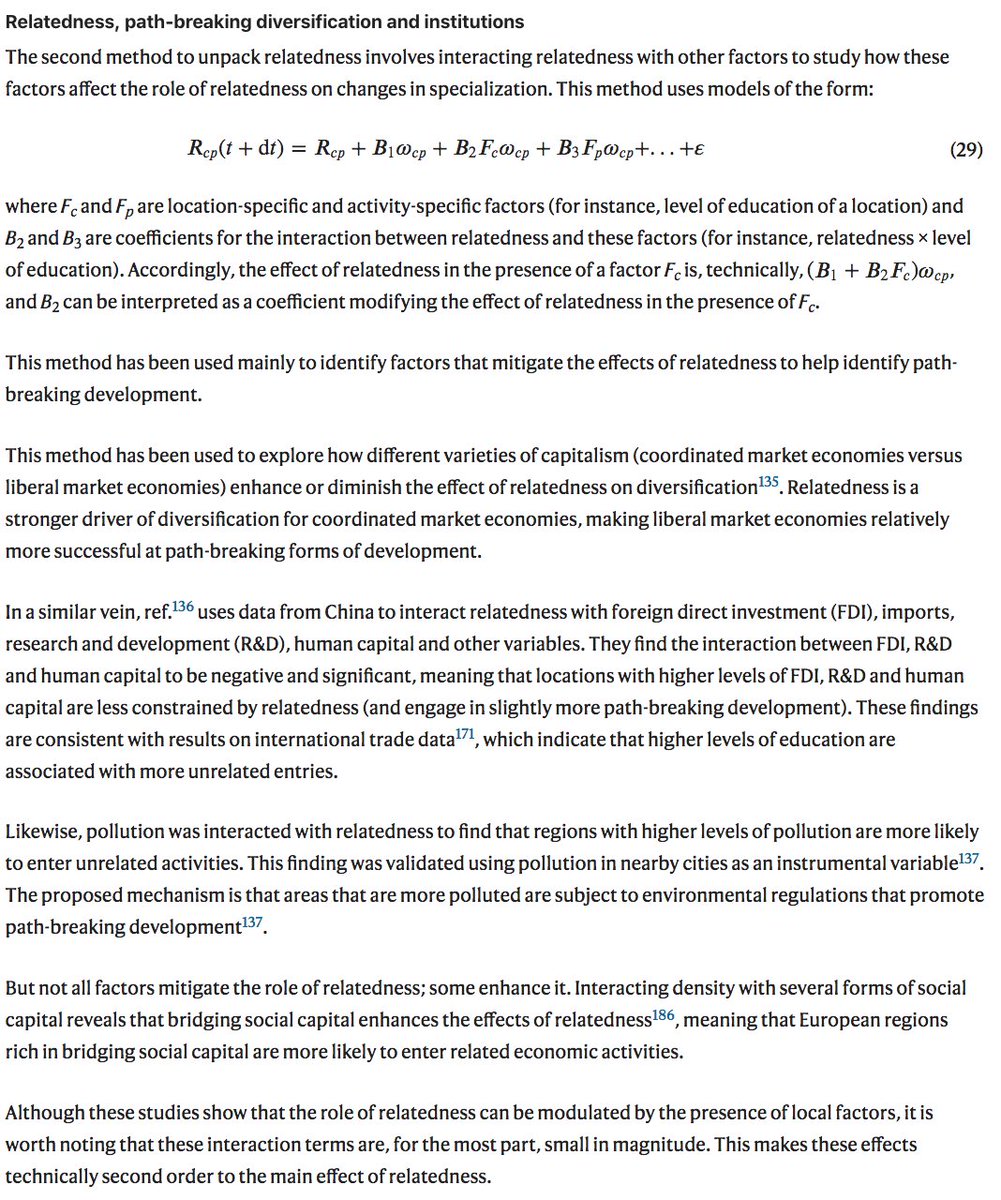
Economic complexity has also been expanded to multiple areas of application. People have shows that complexity metrics explain variations in economic growth, income inequality, and carbon emissions. /13 



People have also looked at the factors that explain changes in complexity, from institutions and demography to FDI, transportation, and internet access. /14
Economic complexity is still young, but it is showing a path forward to understand economic geography by combining tools from machine learning & statistics. I look forward to the future developments of what has been fifteen years of exciting work. // 

• • •
Missing some Tweet in this thread? You can try to
force a refresh

